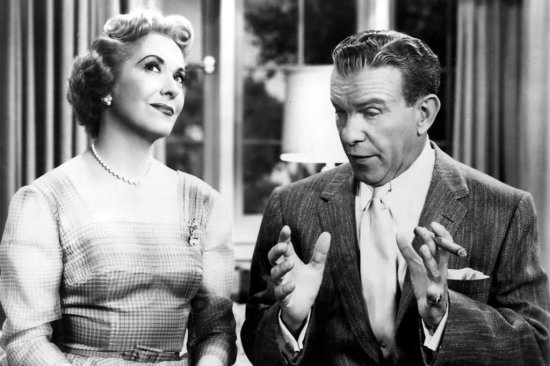
Burns and Allen’s vaudeville-to-screen transition was one of the first comedies that could properly be called a sitcom, as opposed to a string of funny bits. But it also presaged the form-breaking experiments of decades later, as Burns “broke the fourth wall” to comment on the action directly to the audience. Like the racist caricature of Jack Benny’s manservant Rochester, Allen’s scatterbrained wife—all together now, “Good night, Gracie!”—can be hard to take today. But as a performer, Allen was every bit Burns’ comic equal, and she gave her persona enough verve and canniness to suggest that Gracie was ditzy like a fox.
[video id=2B06wu8t ]